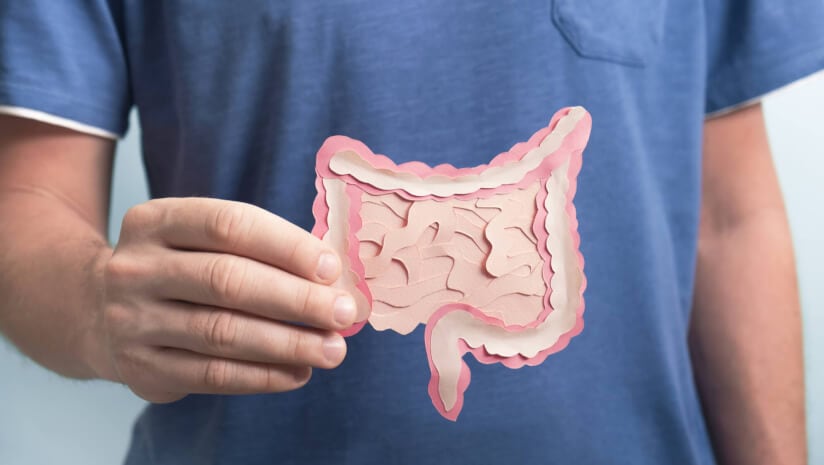Speaking to NutraIngredients-Asia at the Food Ingredients China 2025 (FIC) tradeshow held in Shanghai on March 17 to 19, Biogrowing said oral health would be one of its key focus for the China market this year.
There are a few reasons behind this strategic focus. One is that market demand for oral health product was fast-rising, especially on social commerce such as Douyin - China’s TikTok.
“On Douyin last year, the entire oral health market category had grown by 500 per cent - and this was one of the fastest growing in the probiotic space,” Kathy Yan, product manager told us.
Some of the brands leading in this category are Swisse with its Probiotics Bubble Effervescent, as well as EarthPark tablets.
Higher living standards have led among Chinese consumers to pursue not just basic health needs, but also how they present themselves in social settings, and hence, the greater attention on issues such as halitosis or bad breath and oral hygiene, she explained.
Another reason is that Chinese consumers are becoming more cognisant of how dietary and lifestyle habits can affect oral hygiene.
Late nights and diets consisting of spicy foods, for instance, can lead to issues like bad breath.
“For instance, when dietary habits and living standards have improved, people would start to pay attention to other issues, such as oral health.
“Also, some people may have a habit of staying up late or enjoy eating spicy foods, these would certainly contribute to bad breath as well.
“Another reason is due to social engagements. Some people may have a lot of social engagements, including those for business purposes, and so they would pay more attention to issues like bad breath.”
These various factors together have led to the rise of new market opportunities, she said.
More importantly, the company is focusing more on oral health this year due to growing scientific evidence showing probiotics' benefits in addressing halitosis and modulating the oral microbiome, she said.
Growing clinical trial evidence
At the show, the company showcased its latest product concept “Oralbubble” for oral health.
This is a “microbubble tablet” (微泡片) that consists of three probiotic strains.
The three strains are Lactobacillus salivarius LS-G60, Lacticaseibacillus paracasei LPc-G110, and Lactiplantibacillus plantarum Lp-G18.
In particular, Lactobacillus salivarius LS-G60, which was isolated from the saliva of healthy adults, has been reported to address halitosis in a study published in Journal of Periodontology in 2020.
The trial involved 45 individuals with oral halitosis who were randomised into three groups taking a gum containing either 1) LS-G60 at one billion CFU and inulin as prebiotic, or 2) LS-G60 alone, or 3) placebo once every 12 hours for 10 days.
Findings showed that patients treated with both the pre and probiotics showed greater reduction in halitosis as measured by Halimeter compared with placebo.
The strain was also reported to have inhibited the growth of Porphyromonas gingivalis (P. gingivalis) and Prevotella intermedia (P. intermedia), both of which are bacteria associated with periodontal disease.
Another strain, LPc-G110, was reported to have reduced dental plaque.
The strain was also selected from out of 73 strains and has been patented in five regions, China, the US, EU, Japan, and Australia.
This is according to findings of a study published in Frontiers in Oral Health in 2022.
The trial tested the effects of taking lozenges containing either 1) one billion CFU of LPc-G110, or 2) five billion CFU of Lactobacillus plantarum (GOS42), or 3) placebo on gingivitis - specifically gingival bleeding, as well as secondary outcomes like dental plaque accumulation.
A total of 117 healthy subjects were involved in the six-week study.
In the first two weeks, the subjects were randomised to take in lozenges containing either LPc-G110, or GOS42, or the placebo three times daily.
In the third and fourth week, they continued to take their assigned lozenges but were requested to refrain from any form of oral hygiene for two weeks.
In the last two weeks, they stopped using taking their assigned probiotic or placebo and restarted their routine oral hygiene.
Findings showed that the two probiotics have inhibited pro-inflammatory cytokine IL-1ß production as measured in saliva during the experimental gingivitis period.
The LPc-G110 strain also showed stronger microbiome-modulating potential than the GOS42 strain.
The Lp-G18 strain, on the other hand, is targeted at individuals suffering from Helicobacter pylori (H. pylori) infection by inhibiting the bacteria growth - as H. pylori gastric infection can be a cause of bad breath.
“Our oral health probiotics portfolio is targeted at eight commonly seen oral health problems, including halitosis, stomatitis, gingivitis, dental plaque, oral microbiome dysbiosis etc,” Yan added.





